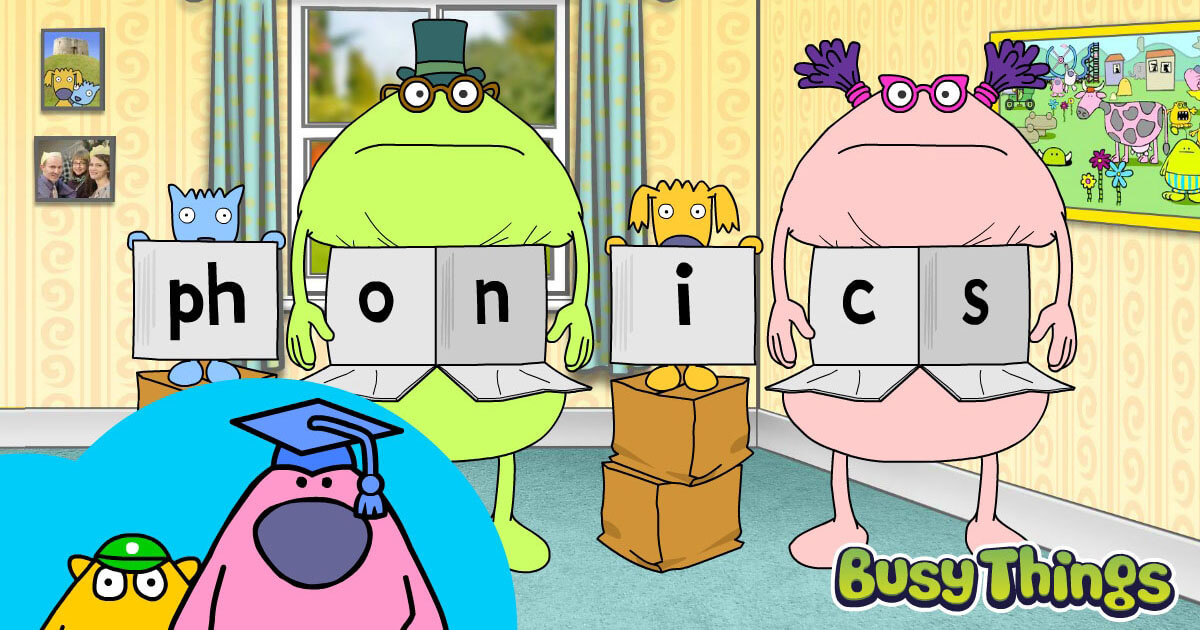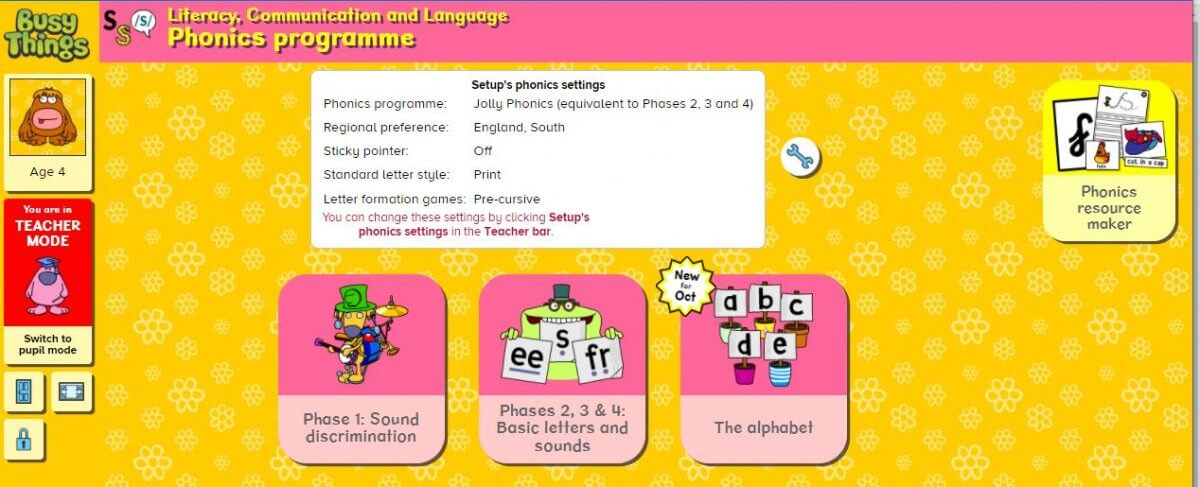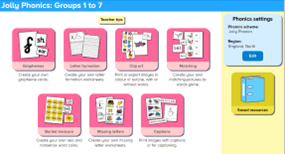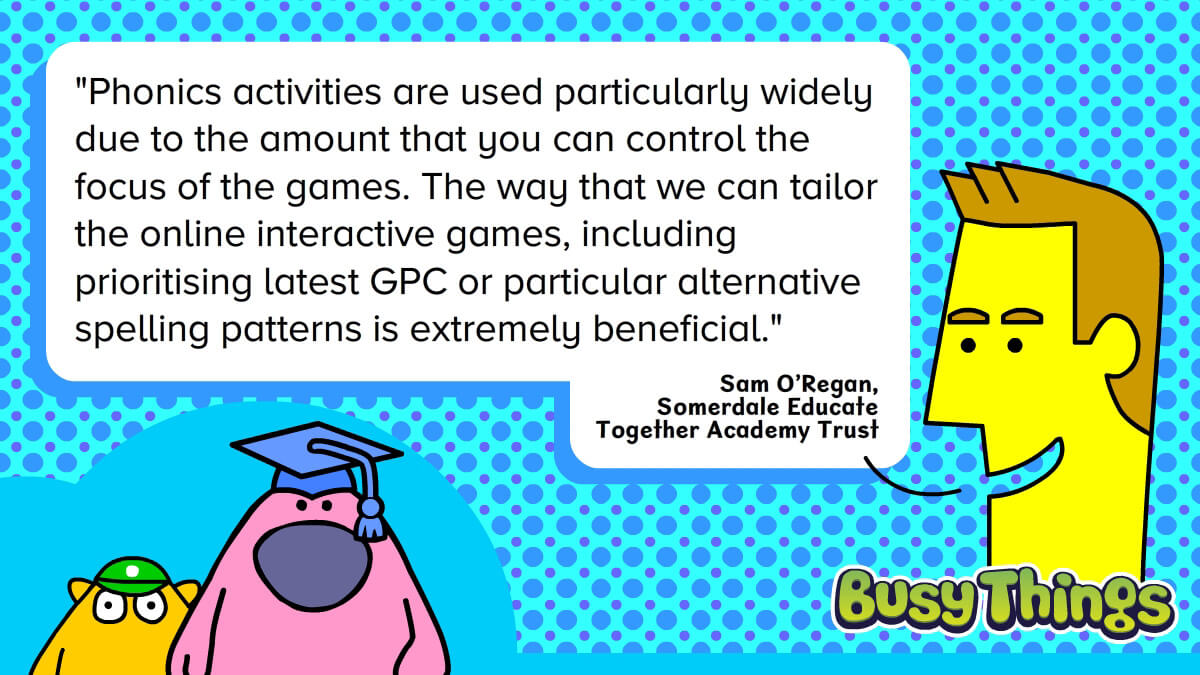Moving Forward With Phonics

Having welcomed your Foundation Stage children into class and settled them into their new routines, we know Reception teachers across the nation will be preparing for their first phonics lessons. If that’s you, read on!
Where are you now?
Understanding the current strengths and weaknesses in your phonics practice is key to improving the children’s success. And, we see two areas to explore. The first and most important is to look at your own practice and results from last year. The second, to look at phonics teaching more generally.
Evaluating last year’s performance
If you’re a regular reader of our blog, you’ll remember our Next Steps post following the Phonics Screening Check results. Tweaking your practice and including milestones along the way is good practice and key to achieving improved outcomes for your pupils.
Looking at the bigger picture
Taking a look at the general trends in phonics is also really useful, especially as research has highlighted several universal weaknesses in systematic synthetic phonics. Most of the problems stem from the smaller teaching groups that many of the programmes recommend. Smaller teaching groups will potentially mean more space is required, more support in terms of teaching staff and often more time allocated to the subject too.
Another weakness highlighted is that the reading material used to consolidate the children’s learning is often seen as meaningless and repetitive, actually discouraging the children from reading rather than inspiring them to take pleasure in it.
How can you close the gap between where you are now and where you want to be?
Understanding where your specific issues lie and what you’re striving towards is key to developing your plan of action and establishing your check points. If smaller groups would help, you need to liaise with other teachers/school staff to help make this happen; if more staff are needed to support this, additional training may be required.
Involving your children’s parents
When looking at where you need to be, don’t forget parents are a valuable resource that you can tap into. Involving them can be a game-changer, providing the children with the extra time they need to consolidate their learning and modelling positive reading behaviours at home.
In previous blogs, we’ve looked at how it’s possible to get parents more involved in their children’s learning, so check these out here. The first, Helping Parents Provide Phonics Support, looks at very general support for reading. The second focuses on helping parents understand more about phonics and includes a presentation you could use in a parent workshop.
Providing the children with home access to Busy Things can also be beneficial. The game-based activities make homework more appealing for children, so easier on the parents. At the same time, using the same platform for class and homework keeps the learning consistent. For more information about this, please contact us here.
Supplementing Busy Things’ activities into your phonics programme
Another area where Busy Things can help with phonics is with the activities. Whether you need to adopt a more playful approach for some or all of your pupils, we can help. We have a wide variety of activities to support phonics learning from flash cards you can use on Day 1 right through to exploring homophones in Year 2. In addition to this, we also have our Phonics resource maker to help you create customised worksheets in seconds.
Activities

Busy Things has phonics activities that will take your children from learning to differentiate different sounds right through to understanding alternative letters and sounds.
Created to support the major phonics programmes, you can tailor them to your particular geographic region and letter style preference, so that they fit seamlessly into the rest of your provision.
Phonics resource maker

Our Phonics resource maker allows you to make tailored resources. From worksheets to support the children’s letter formation to matching games that target specific phonemes, there’s even a phonics screener to give your pupils practice for the end of Year 1 check.
Want to try Busy Things’ phonics activities yourself?
All of our phonics activities are included as part of our annual subscription. If you would like to take a look, we’d be happy to arrange a 28-day free trial of the full resource for you. Just click here to get started!
Our games and activities can be played on tablets, desktop computers, laptops and whiteboards, and are great for independent, group and whole class use.
Last but not least, what our subscribers say about our phonics activities!
